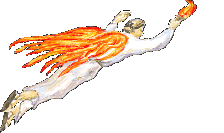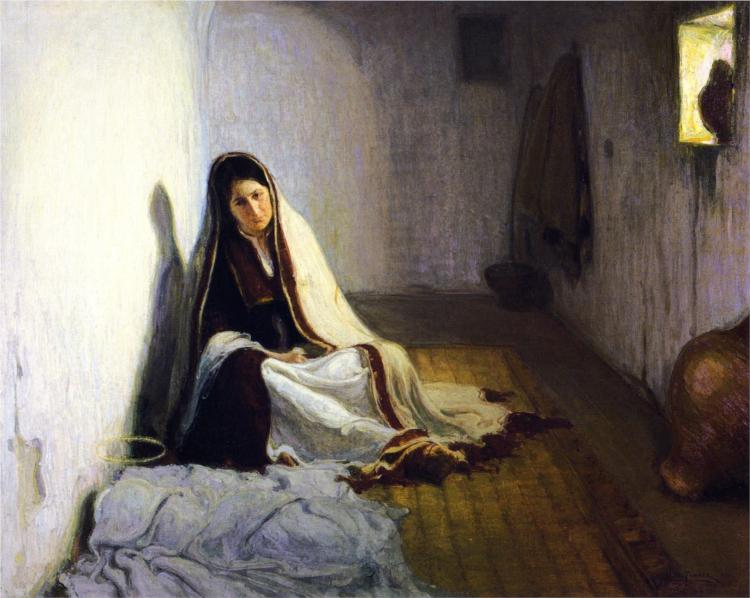|
Nations have, at times, gone through all the turmoil and drama of a revolution
only to conclude, in the end, that far from entering into a new birth of
liberty, they have exchanged one set of masters for another. The Russian
people, disgusted with their long servitude to a worthless
aristocracy, threw off that yoke. What filled the vacuum thence
resulting were the 'Nomenklatura,' the new class of communist
bureaucrats, who were not one whit less greedy and self-interested than
their predecessors, but differed from them only in being less competent,
less sympathetic and less interesting. And so they jettisoned, in their
turn, the 'Nomenklatura,' the privileged communist elite. Modern readers
cannot help but feel nostalgia for the deceased, departed 'author;'
though a pompous, egotistical, self-inflated wind-bag to be sure, at
least he sometimes made sense, which these newly ascendant literary
critics, who have not only declared but achieved their independence,
seldom do.
The story is told of a lady who attended a lecture by
American pragmatist William James. She approached him afterwards to
share her theory that the world rested upon the back of a giant
turtle. 'And upon what does that turtle rest, Madam?' asked he.
'Upon another turtle,' she replied. 'And upon what does this next
one rest, Madam?' the patient savant continued. A turtle, of course. The pragmatist
continued plodding on in this manner until the victorious lady
announced, 'It's no use, Mr. James. It's turtles all the way down!'
As Roland Barthes explains in the text cited above, "the structure
can be followed, 'run' (like the thread of a stocking) at every
point and at every level, but there is nothing beneath. . ." The
narrative rests, not upon the bed-rock of 'what actually happened,'
but upon another narrative, which in its turn rests upon yet a third
narrative. . .
Historical author David Barton is much exercised against the
post-modernists. But he is caught in their web. Every American
school-child has learned that the American revolution was made by a
handful of Virginia squires gathered together in a back room.
Because these men were slave-holders, we have grown disenchanted
with our founding fathers. Instead of sharpening his tools to drill down
through the inherited narrative to the bed-rock of actual reality which either
underlies, or shifts and fails to support it,
the post-modernist posits nothing but narrative, all the way down.
Like the lady's turtles, one narrative rests upon another; there is
no 'reality' down there at all. Although the jury may be forbidden
by the judge's instructions from disallowing testimony against which
no rebuttal has been brought, the post-modernist may believe
whichever narrative he likes best. . .even the school-child's
narrative, that a handful of Virginia squires made the American
revolution. Two faces carved on Mount Rushmore, Thomas Jefferson and
George Washington, are the revolution. Now this narrative has begun
to pall; modern readers dislike reviewing Jefferson's patronizing racist
drivel, and it's painful to be reminded that American slave-owners got a
harem in the bargain, along with a work force (even if the DNA
evidence leaves open the possibility it could have been Randolph,
his brother).
Manifestly we need a new narrative. Is it really so apparent that
this once popular narrative, that the revolution was made by a
handful of Virginia squires, has successfully drilled down to the
bedrock of very reality? Or is it not manifestly absurd to suppose
any revolution ever so made? Thomas Jefferson penned the Declaration
of Independence, a wonderful achievement to be sure; as Diana
Trilling said of Jean Harris, you either have this prose or you
don't. But no history of the twentieth century will single out Peggy Noonan
as the decisive figure, unless perhaps she goes on to be elected
President in her own right. The Declaration was a clarion call to war; but its author was
personally deaf to the bang of his own war-drums. Though not a
pacifist like his Quaker friends, Thomas Jefferson never fired a
shot in anger. . .at anybody. Molly Pitcher risked more of her own skin
in defense of the revolution than did this man. Please note, I'm not
finding fault: there was no military draft in that day, even the
European despotisms were defended by professional/volunteer forces.
Jefferson violated no law in failing to enlist; he evidently felt
military matters were best left to specialists in the
field. But is a man whose battle cry was 'See you later' the obvious
choice for Mr. Revolution?
Benjamin Franklin expressed the mindset in his ditty, "The King's
Own Regulars; and Their Triumphs over the Irregulars,"
"As they could not get before us, how could they look us
in the face?
We took care they should not, by scampering away apace;
That they had not much to brag of, is a very plain case.
For if they beat us in the fight, we beat them in the race."
(Angelic Music, by Corey Mead,
p. 45).
Thomas Jefferson was a revolutionary fighter after the style of
Franklin's hero; the enemy never had the opportunity of looking him in
the face, because he was long gone.
If you plan to spend your vacation visiting the great
revolutionary battle-fields of Virginia, please do not trouble to
stuff your satchel with very much clothing and supplies. When
General Cornwallis' troops advanced toward Charlottesville, the
latest temporary capital not yet abandoned, did they find their path
blocked by an embattled farmer, Thomas Jefferson, musket in hand?
No, nothing hindered their progress, nor had for some time. Thomas Jefferson, at
that time governor of the state, had skedaddled. Oddly for the
Parent of our Liberties, he spent the ensuing months in private
retirement at a farm (not Monticello, left abandoned). The Virginia
legislature subsequently convened an inquiry, wondering at the
swiftness with which Mr. Revolution had abandoned his duties. Nor
had he reached out thereafter to restore any functional membrane of
an underground state government network. Virginia
was not the Kandahar province of the Americas. The angry mobs which
blocked the path of the red-coats in Massachusetts were not much in evidence there.
The fact that substantial portions of Massachusetts' populace opposed
monarchy in principle on religious grounds probably played some role in
this noticeable regional disparity. So what ever started the myth that Thomas Jefferson was a one-man
revolution? From such intractable clay, how was a patriot hero
forged? We were already practicing post-modernism the first time the story
was told, much less the last; this is not a story that rests upon the
bedrock of observed fact, it was willed into existence; people told the
story because they liked it, not because it happened that way.
Why was it necessary for the Virginians to be front and center in
the campaign for independence? John Adams wanted them to be. Not
only did he realize Thomas Jefferson wrote better than he did, he
did not want it to appear that a rebellious New England was dragging
the other colonies into revolution, even if that was in fact the case. If
you go looking for other heroes, applying a slightly different
filter, you may find them. Here are, according to PolitiFact, the
signatories of the Declaration of Independence who did not own
slaves. There are promising candidates for
review:
"John Adams, Samuel Adams, George Clymer, William Ellery, Elbridge Gerry, Samuel Huntington, Thomas McKean, Robert Treat Paine, Roger Sherman, Charles Thomson, George Walton, William Williams and James Willson." (PolitiFact Fact Check, politifact.com)..
But after all, when we finish drilling down through successive turtles
and narratives, what is left beneath all the myth-making is a kernel of real achievement. No doubt his authorship of
the beautifully written Declaration along with his life-long advocacy for individual rights
left the nation with a debt of gratitude to this man, Thomas Jefferson, and his
subsequent election to the presidency cast a long backward shadow
covering his rather thin and watery revolutionary resume.
Why was he made into 'the' hero of the revolution? Some people elevated
this man, no doubt, simply because they liked him. People do that.
Modern-day atheists call themselves the 'brights,' implying that
others are rather dim. Their predecessors called themselves the
'Enlightenment.' Their fingerprints are all over the French
Revolution, with predictably horrific results. Despising Christianity, once
they started killing, they could not stop; turning the other cheek was
"sinking man into a spaniel," as Tom Paine famously said, so violence
once unleashed becomes an avalanche. They would like to
claim credit for the more successful American Revolution as well,
but the causal nexus is difficult to trace. There were, patently, currents
of thought stirring the land altogether outside their orbit. But they were a
legitimate thread in the fabric: the pamphleteer
Tom Paine was one of their guys, and Thomas Jefferson and Benjamin
Franklin were somewhat under their influence; Jefferson had even
read the skeptic David Hume. Ergo, Jefferson was the Revolution.
Even if all the red-coats ever saw of him was the back fasteners of
his suspenders.
The first draft of history involves identifying who the players
are. Viewing an oil painting of the signers of the Declaration of
Independence, who are the movers and shakers, versus the
guys who are just standing around? All these men, in truth, took great
risks in affixing their name to a document which would be perceived
as treasonous if they failed; “Only they would ever know what Rush
described as 'the solicitude and labors and fears and sorrows and
sleepless nights of the men who projected, proposed, defended and
subscribed the declaration of independence.'”
(Fried, Stephen. Rush: Revolution, Madness, and Benjamin Rush, the
Visionary Doctor Who Became a Founding Father (p. 162).)
Credit they all deserve, and a nation's gratitude.
Christian historians like David
Barton, if they want to be helpful, should not just borrow this
first draft from the secularists, unexamined and uncorrected. Is
Thomas Jefferson really the guy? Or was that elevation decided by people
overly sympathetic to his heterodox religious viewpoint? Or by Confederate
propagandists who wanted it understood that Virginia was the cradle
of liberty? There is no doubt that Deist authors like Thomas Paine
and Ethan Allen contributed to the Revolution; no one could deny
this, and in fact I have included Ethan's Allen's manifesto in the Thriceholy
library.
|















